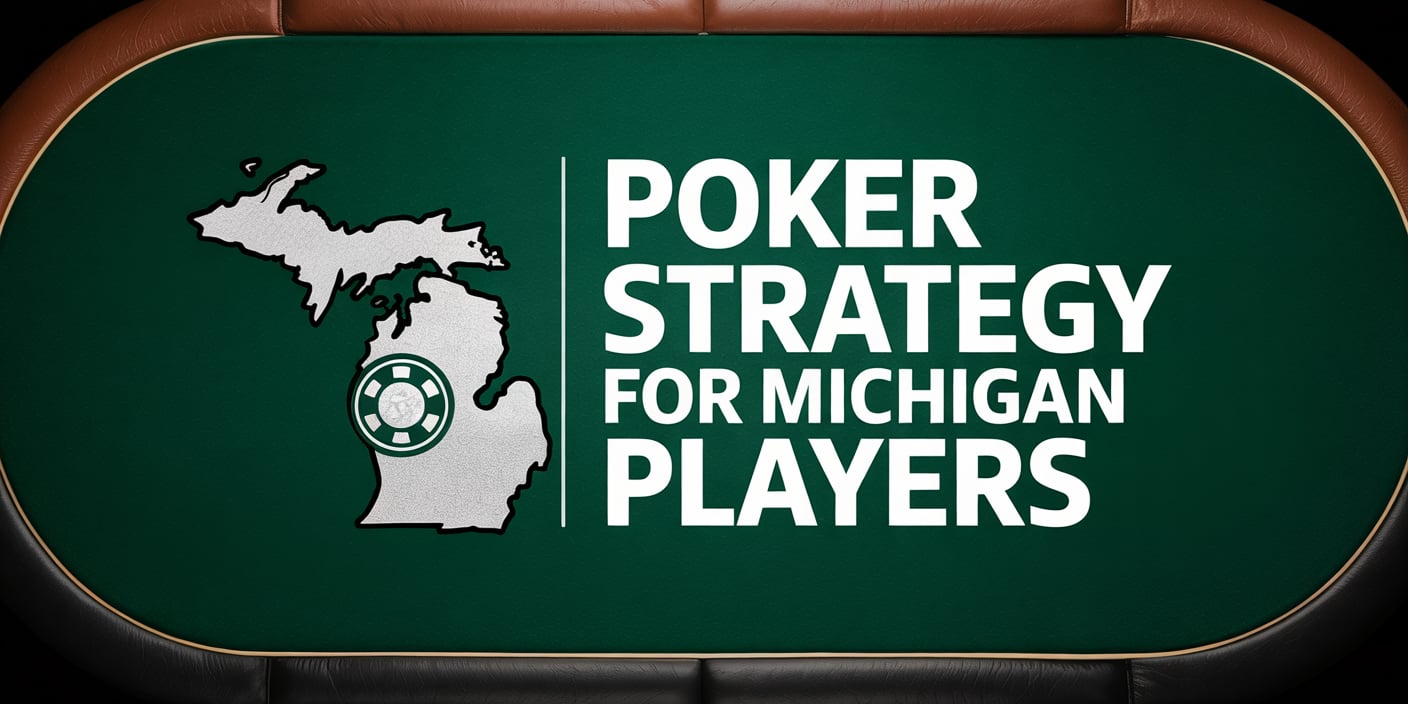
Tips and tactics to help you win more, whether online or in person
Michigan players love poker — on the live tables in Detroit casinos or playing from the comforts of home online. Whether you're fresh and just coming on the scene or looking to advance your game, this guide has the necessary poker tips specifically for success in the Michigan poker environment.
Poker can be a delightful pastime or a serious venture. As the saying goes: Poker takes five minutes to understand but a lifetime to master. With the right strategy, you'll be making the better decision and winning more often - whether that's at the MotorCity Casino, a home game in Ann Arbor, or playing online in the state. If you’re playing online and want a reliable platform, check out some of the top US poker sites where Michigan players are welcome.
The Fundamentals: Where to Begin
1. Know Your Intentions
Before you take a seat at the table, consider this: Are you playing for enjoyment or are you out there to win and make a profit? Either way, both mindsets are equally as good but knowing your desired outcome can influence your immersion to the game. Even if your goal is to have some fun, you can win if you play well.
2. Learn the Lingo
Poker has its own language. Terms like under the gun, c-bet, nuts, and river are common in both live and online games. Being familiar with this vocabulary helps you eliminate confusion and stay in the moment—especially in Michigan's fast-paced online games.
3. Focus on Making Good Decisions
Even top poker players have losing sessions. Don't evaluate yourself based on the short-term results. Your aim should be to consistently make the best possible decisions. This way of thinking is at the core of sustainable success in the long run.
Poker Math and Technical Play
4. Starting Hands Matter
The first thing to keep in mind when trying to win poker is to play better starting hands than your opponents. If you always enter the pot with better hands than your opponents you’re already starting with a higher expectation.
5. Go Beyond the Basics
Selecting pre-flop hands is important, but preparation is only the beginning. What distinguishes the casual player from the players who know how to play is what happens after the flop: assessing your opponents, pot odds, betting sizes, and when to fold or apply pressure.
Online or in person — an advantage is gained by whomever gets to play well through all streets and not just early in the hand.
The Mental Game
6. Tilt Control Is Key
Every poker player has some level of frustration. If you go home with a "bad beat" or two, you might find that your emotions take over control of your play. This is commonly referred to as tilt, and it almost always leads to making poor decisions and ultimately losing money. The best solution for tilt is to learn to recognize when you are tilting and take a break. This could be a 10-minute break, or even logging off until tomorrow — either way, the game will still be there and waiting for you!
Next-Level Poker Strategy
1. Understand Playing Styles
Poker offers multiple ways to play, and most styles fall into these categories:
-
Tight – Playing fewer, stronger hands and avoiding unnecessary risks.
-
Loose – Playing many hands, often with a willingness to gamble.
-
Aggressive – Raising and betting frequently, putting pressure on opponents.
-
Passive – Calling more often than betting or raising, letting others take the lead.
Which one sounds like you?
In a perfect world, your style should be adaptable. Good players can change styles based on the situation. For new players, a tight-aggressive style is highly recommended (fewer hands, but when you play, be aggressive) as this limits the tough spots and helps instill discipline at the front end.
2. Use Position to Your Advantage
Position, or where you are sitting at any given time, is everything in poker. Taking the "button" position (the dealer position), you act last in that hand and everyone has acted ahead of you already. You get to see what the everyone does before acting yourself. The extra information you have is tremendously valuable.
Play more hands in late position and fewer hands in early position. The later position you are in the betting rounds, the more information you have, especially when bluffing or going for value betting.
3. Bluff with a Plan
Bluffing is not about making a guess — it is about telling a story. A great bluff convinces your opponent that you have a strong hand. But for this to work, then your actions over the course of the hand have to be logical.
Ask yourself: If I actually had the hand I’m pretending to have, would I have played it this way?
If the answer is yes, your bluff is much more likely to work. If the answer is no, savvy players will notice the little inconsistency, and coolly call you down. Always incorporate a story that fits your line.
Final Thoughts
Michigan's poker world - both online and live - presents players with ample opportunities to learn and earn. Whether you're battling at FireKeepers Casino or grinding online tournaments from home in Grand Rapid, these concepts will help you play smarter, more stronger, and more profitably.
Would you like this in a format print friendly PDF or more suited for beginner or advanced player? Just let me know and I'll make it fit your criteria further.
 TopPro10 The Best Product
TopPro10 The Best Product